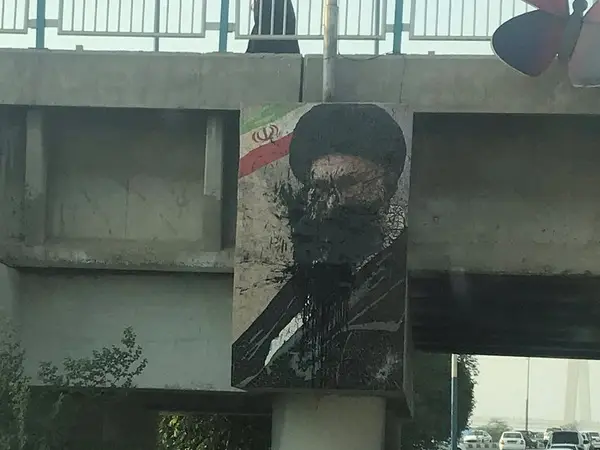Western officials have been meeting with Iranian activists abroad while the United Nations may step up pressure on Tehran for the harsh crackdown on protests.
The first high-level western official to meet with an Iranian activist was US Vice President Kamala Harris who in her meeting with Iran-born actress and activist Nazanin Boniadi October 14 underscored that the Biden-Harris Administration would continue to stand with Iranian women and citizens.
Two weeks later, on October 29, Canadian Prime Minister Justine Trudeau became the first world leader to join Iranians at a demonstration in Ottawa. Trudeau hinted at the possibility of regime change in Iran in his exchange of words with Iranian activists including Hamed Esmaeilion who initiated global rallies against the Islamic Republic soon after the protests began.
French President Emmanuel Macron also met Friday with a delegation of expat activists and rights advocates -- including Masih Alinejad, Shima Babaei, and Ladan Boroumand. Macron was the first western leader to refer to the Iranian protest movement as a “revolution”.
German Chancellor Olaf Scholz also said a video posted on Twitter Saturday that he favors a new round of European Union sanctions on Iran next week to step up the pressure on the Revolutionary Guards (IRGC) and the political leadership.
Majid Golpour, Paris-based international affairs expert, told Iran International TV Friday that the European Union will completely revise its general Iran policies “in form and content” within the next ten days and member states will release official statements outlining the new measures they will adopt vis-à-vis the Islamic Republic in the light of the developments in the past two months.
These measures, Golpour added, may include closure of EU embassies in Tehran and establishing secure channels for European parliamentarians’ contact with “Iranian civil society” and its activists while also no longer overlooking Iran's breaches of the 2015 nuclear agreement such as higher uranium enrichment and stockpiling to ensure the deal could be restored.
The four world powers have submitted a draft resolution to the board of the International Atomic Energy Agency (IAEA) which requires Iran to urgently explain uranium traces found at three undeclared sites, Reuters reported Friday. Iran has agreed to hold a meeting with IAEA officials in Tehran after next week's IAEA board meeting to resolve outstanding issues.
Deputy chief of the Iranian Judiciary Kazem Gharibabadi told reporters in New York Saturday that he planned to take part in meetings of the UN General Assembly Third Committee to hinder the “circulation of hostile and fake narratives by the West and the US on recent developments in Iran.”
Calling the recent protests “riots”, he claimed that the imprisonment of thousands of protesters, as rights groups have reported, is false and that foreign enemies were seeking to put pressure on Iran for their own political gain.
Germany and Iceland have called for an urgent meeting of the UN Human Rights Council on the situation in Iran.
UN experts, including Javaid Rehman, Special Rapporteur on the situation of human rights in Iran Friday, urged Tehran to stop indicting people with charges that carry the death penalty for participation in peaceful protests.
“The experts also urged immediate release of all those arrested for peacefully protesting arbitrarily for ‘exercising their legitimate rights to freedom of opinion and expression, association and peaceful assembly and for their actions to promote and protect human rights and fundamental freedoms through peaceful means.”
On November 6, 227 members of the Iranian Parliament called on the judiciary to act decisively against people arrested during the protests using even the death penalty.
